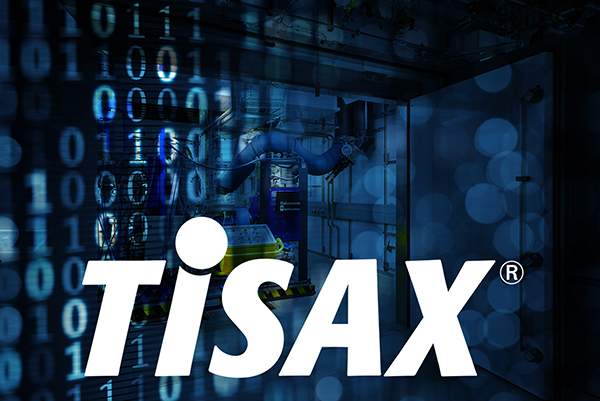
|
Segula Technologies uses PROSTEP's Data Exchange Solution from the CloudBy Sandra Baszczawski An ever-increasing number of carmakers are requiring their development partners and suppliers to comply with the TISAX standard for information security. This also applies to data exchange. Segula Technologies, a global engineering service provider, therefore makes use of the TISAX-compliant OpenDXM GlobalX data exchange solution from PROSTEP – which in the meantime is being used as a SaaS service from the cloud. 
TISAX stands for Trusted Information Security Exchange and is an IT security standard originally defined by the German Association of the Automotive Industry (VDA). It is based on the ISO 27001 standard but also gives due consideration to the carmakers' specific requirements. The ENX Association, which maintains a comprehensive database of all TISAX-compliant companies, is responsible for operational implementation of the standard and organization of the assessment process. TISAX is now also being used by non-German carmakers and by companies in other industries that want to avoid the time and effort involved in performing individual security assessments of their suppliers. TISAX was the primary catalyst behind Segula Technologies' decision to introduce OpenDXM GlobalX. "We wanted to ensure TISAX-compliant data exchange, both on demand and via a static data connection using OFTP or OFTP2, without any need for human intervention," says Jürgen Thiessat, Director IT/CISO at Segula Technologies GmbH in Rüsselsheim. The solution ensures a high level of encryption and logs the data transfer, which means that it is always possible to determine whether or not all the data has been transferred. 
Broad-based engineering service provider Segula Technologies is a global engineering group with 140 branch offices in over 30 countries that is helping enhance competitiveness in key industries such as automotive, aerospace and defense, energy, rail engineering, maritime and life sciences. In Germany, Segula Technologies is a full-service provider of solutions for the mobility sector and provides support for the entire development and testing process as part of the mobility transformation. The company is an independent partner for comprehensive engineering, testing, validation and consulting. Segula Technologies also benefits from its many years of experience as well as the acquisition of the facilities at the former Opel Engineering & Testing Campus in Rüsselsheim and operation of the test center in Rodgau-Dudenhofen. The company maintains a presence at eight locations in Germany. "OpenDXM GlobalX complies with TISAX requirements, which means that the data exchange solution provides the Group with excellent opportunities for development," says Thiessat. In the future, an increasing number of manufacturers will require their suppliers to be TISAX certified. This will increase the pressure placed on the international members of the Group, as they will have to exchange their data in a TISAX-compliant manner, although not necessarily using OpenDXM GlobalX. But as Thiessat points out, “This is the solution the Group has opted for." An important factor influencing the decision in favor of PROSTEP's data exchange solution was the fact that it is a local company whose contact persons are available during the respective business hours and speak both German and English. "TISAX is critical, so you can't fool around," says Thiessat. "Although we don't need support very often, when we do, it must function effectively. We have no complains when it comes to the support that PROSTEP provides. Moving OpenDXM GlobalX to the cloud Approximately a year ago, Segula Technologies moved OpenDXM GlobalX, which was originally installed locally, to the cloud to make it easier to connect other sites to the data exchange solution. "We've been using OpenDXM GlobalX on-premises for five years now because there was no cloud solution back then. This was perfectly adequate for initial certification but placed particular demands on the software stack in terms of security. Which is why, during the last extension, we asked ourselves whether a cloud instance might be worth considering," says Thiessat. A decision was made in favor of this option and was subsequently implemented at operational level. 
As Thiessat went on to explain, moving to the cloud was not difficult technically because OpenDXM GlobalX does not store the data permanently but rather 'only' acts as a secure data marketplace. "When the market is over, the stands are dismantled and the data is cleared away, which means there is not a lot of data that needs to be migrated." Only the log files that document past data transfers had to be migrated. Helping to understand the new distribution of tasks in the cloud to the administrators posed a bigger challenge. They were used to having full control over the 'engine room'. In the cloud, they are practically only responsible for onboarding and offboarding users and have to contact PROSTEP's help desk for all other technical matters, i.e. opening a ticket. "There is a clear division of responsibilities, which I think is a pretty good thing because it complies with TISAX and relieves our administrators of certain tasks," says Thiessat. This is no longer an issue, as the service works well. More security and greater scalability As Thiessat says, relieving administrators from having to perform certain tasks was one of the unexpected benefits of using the cloud. The administrators no longer have to worry about system updates or installing security patches because PROSTEP assumes responsibility for maintaining the solution in cooperation with the data center operator. The redundant design of the infrastructure and the high level of vigilance that the operator offers in terms of cyberattacks means that the cloud solution offers greater security. It is also easier to roll out at other locations and offers greater scalability. "The cloud is not however a cost-saving model," as Thiessat points out. But the costs are easier to plan. 
Approximately 300 users from different industries are currently working with the cloud-based data exchange solution. It not only allows them to exchange complex CAD models and drawings but also mockup videos, quotation documents and other data, for example. All confidential and strictly confidential data should be exchanged via OpenDXM GlobalX unless the engineers are generating their engineering data directly in the development environment of the respective client or uploading it to the client's PLM system. They do this using other systems that have highly secure connections. Segula Technologies uses an OpenDXM GlobalX package that offers a fixed number of licenses, which can be increased if more licenses are required. "Thanks to the scalability of the cloud solution, capacity requirements can be managed flexibly and efficiently, thus ensuring that we are equipped to deal with future capacity requirements," says Thiessat in conclusion. |
|
| © PROSTEP AG | ALL RIGHTS RESERVED | IMPRINT | PRIVACY STATEMENT | YOU CAN UNSUBSCRIBE TO THE NEWSLETTER HERE. |

